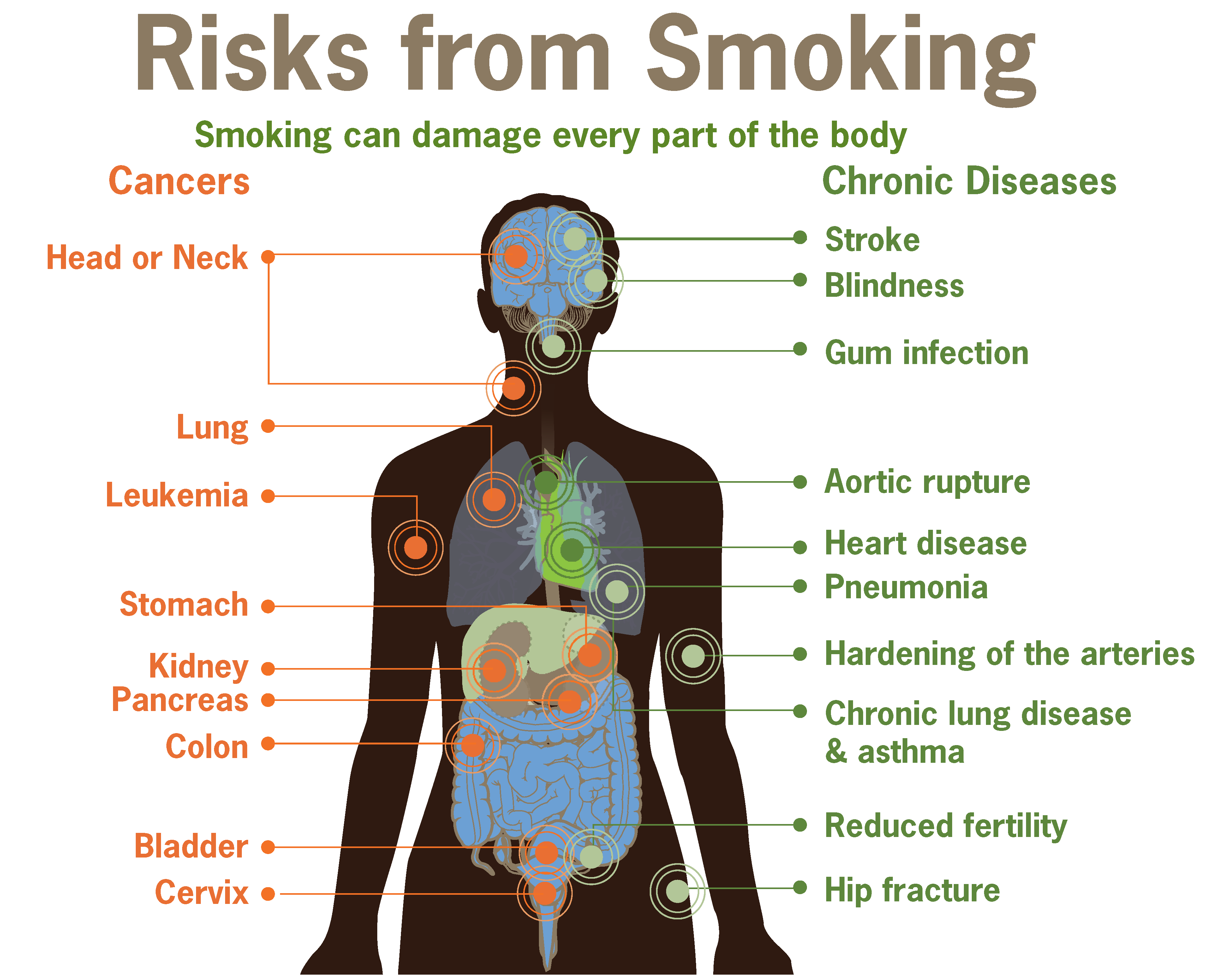Smoking is a major health risk that can cause a wide range of serious health problems. Here are some of the most significant health risks associated with smoking:
- Lung cancer: Smoking is the leading cause of lung cancer, which is the deadliest form of cancer. Smokers are at much higher risk of developing lung cancer than non-smokers, and the risk increases with the number of cigarettes smoked and the duration of smoking.
- Chronic obstructive pulmonary disease (COPD): COPD is a group of lung diseases, including emphysema and chronic bronchitis, that can cause breathing difficulties, coughing, and wheezing. Smoking is the primary cause of COPD, and smokers are at much higher risk of developing COPD than non-smokers.
- Heart disease and stroke: Smoking is a major risk factor for heart disease and stroke, which are leading causes of death worldwide. Smokers are at higher risk of developing atherosclerosis (hardening and narrowing of the arteries) and other heart and blood vessel problems.
- Respiratory infections: Smoking weakens the immune system and can make it harder for the body to fight off respiratory infections like pneumonia and bronchitis.

- Reproductive health problems: Smoking can cause a range of reproductive health problems, including reduced fertility, increased risk of miscarriage and stillbirth, and complications during pregnancy and childbirth.
- Oral health problems: Smoking can cause a range of oral health problems, including tooth discoloration, bad breath, gum disease, and oral cancer.
- Vision problems: Smoking has been linked to an increased risk of age-related macular degeneration, cataracts, and other vision problems.
These are just a few examples of the many health risks associated with smoking. Quitting smoking is the best way to reduce your risk of these and other smoking-related health problems.

